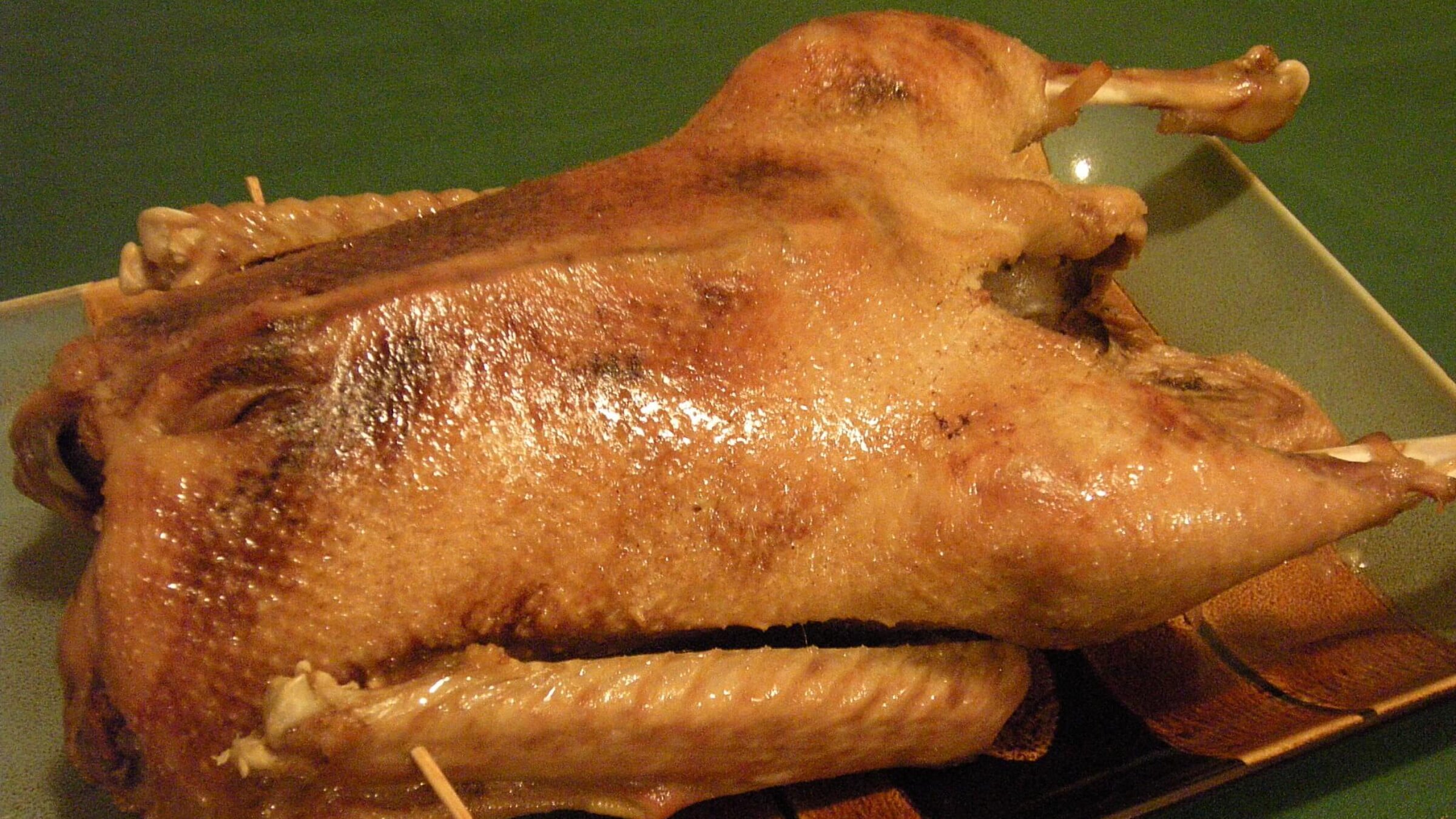Video: Top Jewish chefs praise roast goose as an authentic Ashkenazi delicacy
During the discussion, restaurateur Jeremy Umansky invited the other panelists to Cleveland to meet a local goose farmers

Photo by Flickr
Four young Jewish chefs and cookbook writers recently took part in a lively Zoom discussion about dishes that were frequently prepared by Jews in the shtetls and cities of Eastern Europe.
The Zoom event was hosted by the Forward and moderated by Yiddish editor Rukhl Schaechter.
Jeffrey Yoskowitz, co-author of The Gefilte Manifesto cookbook and founder of The Gefilteria, explained the special role that goose played in the diet of Eastern European Jewry and how to make schmaltz (rendered goose fat) today.
Jeremy Umansky, chef and owner of Larder Delicatessen & Bakery in Cleveland, Ohio, described how he uses only local ingredients and doesn’t waste anything when preparing Old World delicacies. He also explained his unique definition of the word “kosher” and invited the other panelists to Cleveland to meet local goose farmers.
Food and travel writer Joe Baur shared a TikTok on how he discovered pletzel — a simple flatbread with onions and poppy seeds — in the historic Jewish quarter of Paris, and then shows his viewers how to make it yourself.
Shannon Sarna, author of The Modern Jewish Baker and editor of the popular Jewish food site The Nosher, stressed the importance of creating healthful versions of Askenazi delicacies, but drew the line at the best way to prepare matzo balls. For her, the packaged matzo ball mix is just as good as making matzo balls from scratch — and in some ways, even better – a bold statement that drew immediate reactions from her fellow panelists.
The chefs were all clearly animated by the discussion, as were many of the viewers, who ended up sharing recipes of Eastern European Jewish cooking in the chat box.






















